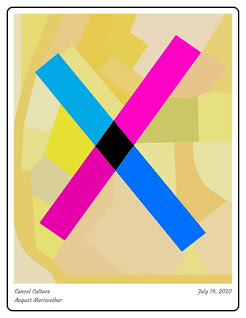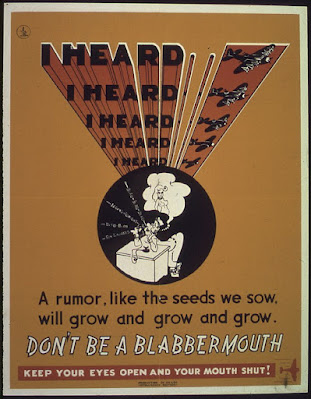Background of Cancel Culture
How I Got Interested In Cancel Culture
Throughout my years in school, especially during high school, I experienced and watched many instances of “cancel culture” unfold. If you were conservative in my high school, you were a essentially a social outcast. The situation that amazed me the most to this day is when I was a freshman in high school. One day out of nowhere, people began pulling up screenshots of things people had said over 5 years ago. Essentially, the students two grades above me(Juniors) started posting screenshots of people who had either said really dumb stuff or had typed out a word they should not have said over text a long time ago for dumb reasons but never directed at a person.
Now I want to make it very clear that I fully acknowledge that there are essentially no situations where it is ever okay for someone to say or type any word that would cause offense. The people who did do this definitely did make a mistake and they should not have done that. However, it was the actions taken by the students of that grade that I didn’t agree with. People were absolutely slandering these individuals on social media meaning people were getting cyber bullied. On top of that, people took it as far to send these screenshots to college admissions officers. Now once again, it is clear that these people who did type out these words over text did not have a reason to do so and it definitely was a mistake. But at what point does what happened start as a holding of accountability turn into a blatant attack on these people? Moreover, were the people who were sharing the screenshots really concerned about accountability or did they only do this to continue attacking these people So I am exploring what really is “cancel culture" and how to approach it as well as what are ways we can talk to people who maybe have different beliefs than we do.
Real Life Controversial Scenarios
So of course this situation is one that is on a much smaller scale as it just affected people in my school, however, this is something that happens on a much bigger scale with celebrities and politicians all the time. There are countless examples of this with comedians who constantly ride the line of being edgy and acceptable and then crossing a line. Comedians like Kevin Hart and Dave Chappelle have both been in controversies over things that they have said numerous times.
Some people hate them now because of what they have said and choose to boycott their content. But the fact of the matter is that some people still love them and choose to support them. Based on John Allen’s book, Cancel Culture: Social Justice or Mob Rule? people feel the need to “cancel” people because it is a way to hold people who did something wrong accountable. There are numerous examples of this social media shaming working such as the #MeToo movement. It also has given voices to those that have historically been suppressed(people of color and various other minority groups). Unfortunately, people have seen how this social outcasting can work to really hurt someone personally mostly on a reputation basis. Since then, it has now also turned into a weapon Link to Attribution that people use to attack someone on a personal level.
Cancel Culture As a Weapon
An example of using this attack on people as a weapon was examined by Rebecca Lewis, an academic writer and a PhD candidate in communication at Stanford University. In her article called “Platform Drama: Cancel Culture, Celebrity, and the Struggle for Accountability on YouTube” she explores where famous influencer James Charles gets attacked from a fellow you-tuber for purposely promoting his own brand of makeup while the other you-tuber was as well. Although there was some truth to this, the other you-tuber than decided to also make sexual assault accusations against Charles which there is still some controversy surrounding that topic as well. Once again, all this led to people instantly taking sides with one side of the argument and attacking the other side. A quote from Charles that is something that I think is a very strong representation of today, “bandwagon hate and cancel culture is incredibly, incredibly toxic . . . it’s very concerning to me that as a society, we’re becoming ok with guilty until proven innocent instead of the other way around." What he is essentially saying is people believe the first thing they hear and run with it. On top of that, people aren't ever given the benefit of the doubt and are just instantly assumed to be guilty for whatever they have been accused of.

.jpg)

Comments
Post a Comment